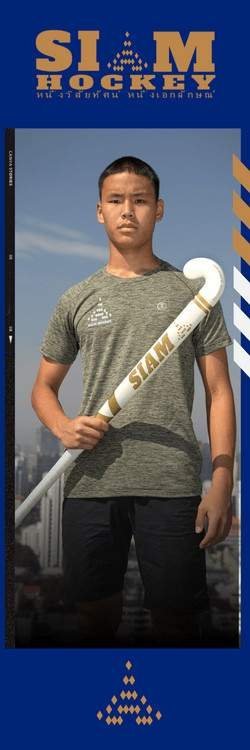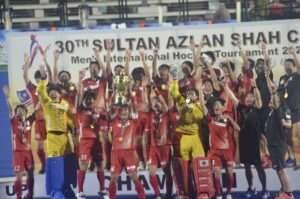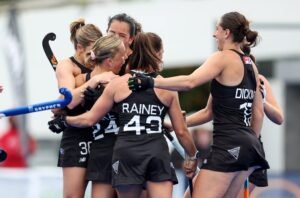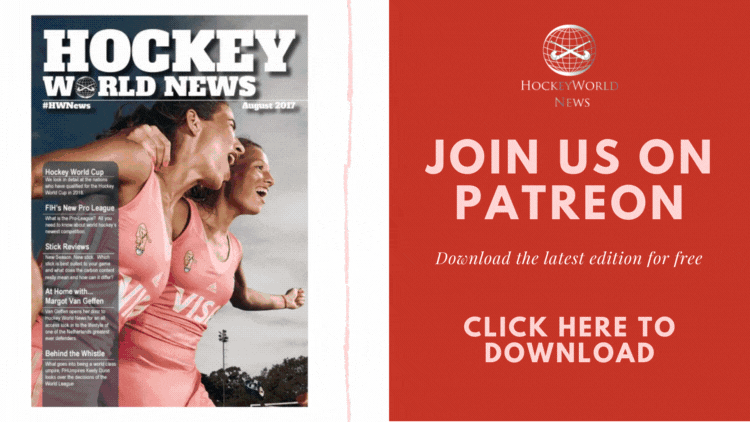Every year, the International Hockey Federation (FIH) is very proud to support the promotion of the UN International Day of Sport for Development and Peace – taking place on 6 April -which is an annual celebration of the power of sport to drive social change, community development and to foster peace and understanding.
“Sport in general – and hockey in particular – has a fantastic potential to be a catalyst for positive social change and to connect people. In the challenging world we’re living in, sport is more needed than ever. The International Day of Sport for Development and Peace comes at a very timely moment, and I can only encourage all members of the global hockey community to actively engage, through hockey, through their communities or also individually, in any activity supporting social development, inclusion and peace. Together, and united, we can make a difference”, FIH President Tayyab Ikram commented on the eve of the 2024 International Day of Sport for Development and Peace.
Throughout the week, FIH has focussed, through its digital platforms, on giving a global echo to stories from all over the world outlining activities from hockey’s global community to promote social change, development and inclusion.
In the heart of Asia, amidst the bustling streets and vibrant communities of Attock, Pakistan, a beacon of hope shines bright through the Attock Hockey Development Project. For the past three to four years, this initiative has been more than just a sports program; it’s a catalyst for change, a vehicle for empowerment, and a symbol of unity.
At the core of this project lies a noble purpose: to provide training and opportunities for the underprivileged segments of society, particularly orphan children and refugees. Led by dedicated coaches adhering to international standards set by FIH, these young learners are not just taught the nuances of the game but are also nurtured to become skilled players capable of showcasing their talents on a global stage.
However, the impact of the Attock Hockey Development Project extends far beyond the hockey field. Recognizing the importance of education in breaking the cycle of poverty, the project ensures that participants receive more than just athletic training. School books, uniforms, and other essentials are provided, ensuring that these aspiring athletes can pursue their academic aspirations without any hindrance.
Moreover, the project serves as a beacon of awareness in the community, advocating against the use of drugs. Through ongoing campaigns and initiatives, it aims to steer young minds away from negative influences and towards a path of positivity and growth.
From Oceania, we hear how the “Hook in4 Health” program makes an impact in Pacific communities. The Oceania Hockey Federation is the lead partner in this collaborative Sport for Development program, currently shared across three countries – Papua New Guinea (PNG), Solomon Islands, and Vanuatu – primarily funded by the Australian Government under their umbrella organisation “Team Up”. Team Up’s overall goal is that all people realise their full potential through sport. It involves 13 sports and has five focus areas: gender, disability, leadership, governance, and knowledge.
The key objective is for Hook in4 Health’s engaged communities to Live Well, Learn Well, Lead Well, through Hockey.
While the activities are inclusive, there is an emphasis on providing innovative approaches resulting in more opportunities for girls and women and those with a disability. The intention is to increase knowledge and skills to make informed choices about health and wellbeing, focusing on Sexual Reproductive Health and Rights (SRHR), self-efficacy, and nutrition.
Hockey community engagement, including boys and men, covers ways of working within local culture, fostering, and supporting gender equity, safety, inclusion, active lifestyle, health, nutrition, wellbeing, community development and sustaining healthy relationships.
From the Panamerican continent, the focus this year was put on the Salvadoran Hockey Federation (FESAHOCKEY) where, under the Presidency of Gerson Suárez, the number of hockey schools in the Central American nation increased from one to 16 in the last two years, providing more boys, girls, and young people with the opportunity to learn and enjoy the sport.
The implementation of the “Student Hockey League Project” in 2023 attracted the participation of 7 schools, 5 categories, and approximately 175 participants throughout the year. In 2024, this initiative continues with the participation of 15 schools and more than 300 boys and girls in 8 different categories.
Gerson highlights that these actions seek to be factors of change and peace in the childhood and youth of El Salvador through hockey and sports. FESAHOCKEY appreciates the support of INDES, COES, the Municipal Institute, and Educational Centers, and is committed to continue working to expand hockey and provide more opportunities for Salvadoran youth.
In Africa, we learn from the work done to revive hockey in the state schools of Zimbabwe’s second-largest city, Bulawayo. Indeed, hockey’s resurgence was crucial in a city where it has traditionally enjoyed immense popularity.
Therefore, Zimbabwe’s Excel Academy embarked on a mission in state schools, with Hillside Primary being their prime target. The school’s rich history of nurturing provincial and national hockey players made it an ideal candidate for this initiative.
The event which took place on 24 November 2023 witnessed an amazing display of enthusiasm and engagement from the children. A staggering 200 eager first-timers participated in the coaching clinic, ranging from 7 to 11 years old.
Cliff Kaseke, the Director of Hockey at Excel Academy and the brainchild behind this initiative, expressed his motivation: “It’s the human spirit that compels us to share this incredible sport with all communities. Witnessing the smiles on these children’s faces and their eagerness for the next session is truly heartwarming.”
In Europe, during the Euro Hockey League last weekend, a sustainability meeting was held, bringing together key stakeholders with a view to finding important ways to improve sustainability in hockey.
The meeting was attended by tournament organisers, sponsors, players, interested stakeholders, EuroHockey staff and EuroHockey President Marcos Hofmann to share their knowledge and showcase sustainability initiatives.
Oliver van Nieuwenhuizen was among the speakers and he outlined how his organisation, The Wave, was spearheading efforts in the Netherlands. The Wave’s mission is to make a world free of plastic waste but initiating a massive movement of awareness and actions from sportspeople.
In practice, awareness was created on the big screen during each break in the 20 EHL matches played last weekend. A video was shown featuring Dutch international stars Jip Janssen, Elzemiek Zandee and Marijn Veen along with Pinoké coach Jesse Mahieu. They outlined all the ways the event was committing to reduce, reuse and recycle.
“We see sport and hockey as a fantastic opportunity to bring people together and create awareness and to try make efforts to make each area a bit better”, van Nieuwenhuizen said.
#IDSDP2024
by Asia Hockey







